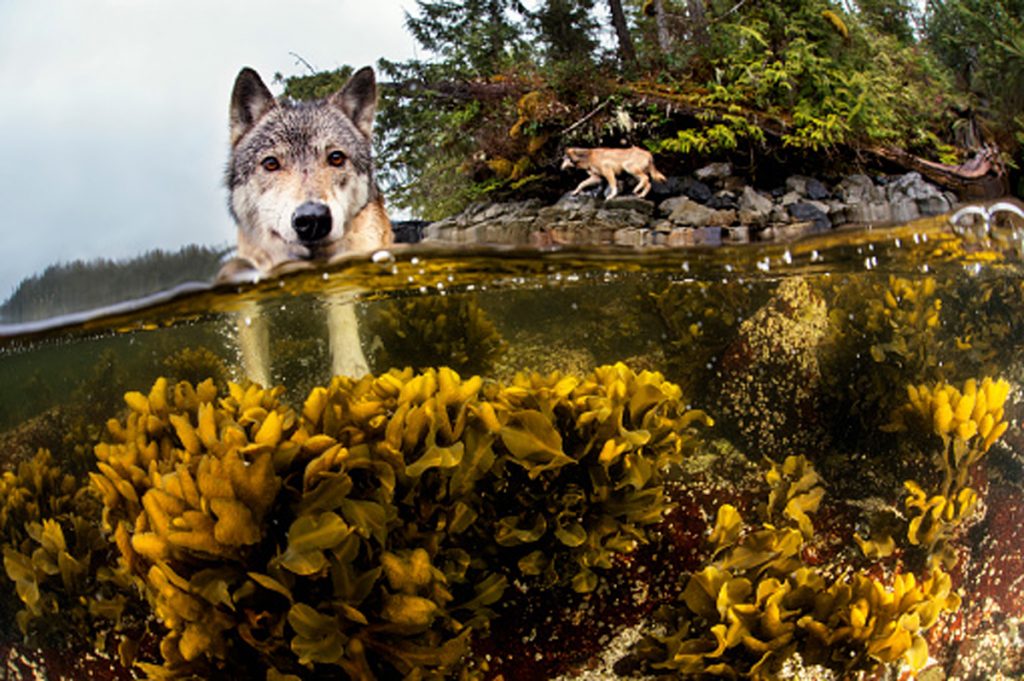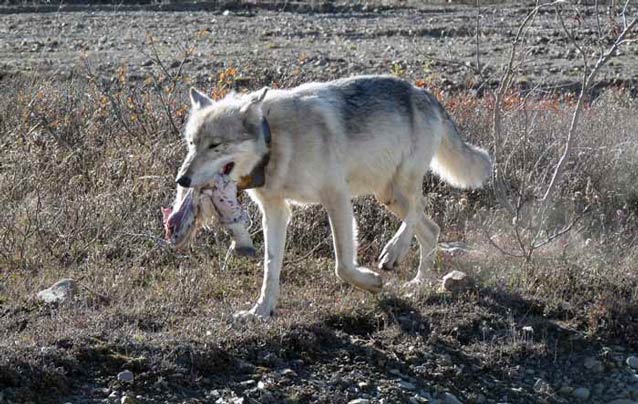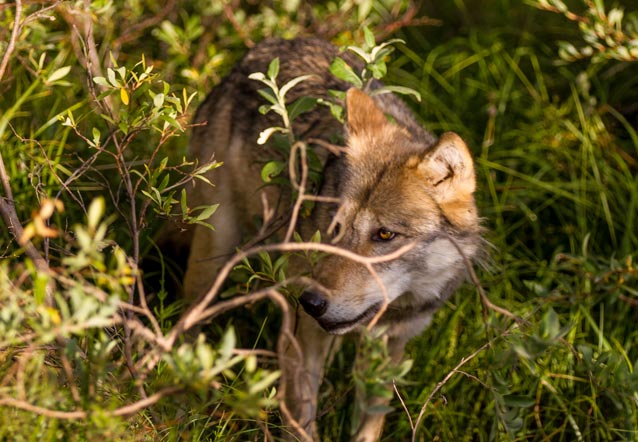
A small, elusive and incredible population of wolves lives on the Pacific coast of Canada.
According to researchers who’ve studied the wolves’ DNA, they’re genetically different from their inland relatives. They’re also very different in their behavior: they depend almost completely on the ocean for survival.
The coastal or sea wolves, as they’re called, are adept swimmers, capable of traveling as far as 7.5 miles from land at a time to hunt and prey on sea creatures. While we may typically associate wolf meals with things like elk and caribou, as much as 90 percent of the sea wolves’ diet is made up of seafood — almost a quarter of it, salmon. They also hunt seals and river otters and forage for barnacles, clams, fish eggs and whale carcasses.

These sea wolves are also physically different from their inland kin: they’re much smaller, about the size of a German shepherd.
What makes them even more remarkable to researchers is the fact that such genetic distinction exists among wolves in an area as small as the coast of British Columbia. Typically, genetic differences are usually found when animals are separated by large distances.
Some sea wolves also live in Alaska, but overall, their populations have declined steadily over the decades.

“They once roamed all the way down to California in its former temperate rain forests. Now they only go down to just north of Vancouver,” Chris Darimont, science director at the Raincoast Conservation Foundation told National Geographic. “This should remind us to take good care of them.”
In fact, there were only about 150 sea wolves estimated to live on Vancouver Island in 2008. Loss of habitat, trophy hunting and a decreasing salmon stock are all threats to their survival.
Video:




